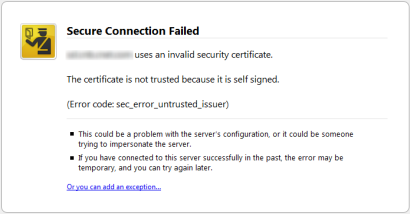Lessons from Firefox 3

I just downloaded the Firefox 3 browser, and if there were problems with their servers before, there certainly are no problems today. The download clocked in under 5 seconds (I do have a fast connection, admittedly), and the install was done in less than a minute. Quite impressive for any piece software, though particularly well-done for something as critical as web browsers.
I'm not going to do a blow-by-blow comparison of the features compared to IE or Safari on Windows, as that's not my thing, and other people for whom it is their thing would do a much better job of it, anyway. It is on my system, however, and I will use it. If I like it, I will find that it starts to be used more and more.
I am sure, however, that Microsoft wishes they had maintained the standards support of their web browser rather than allowing it to languish in non-standard purgatory for as long as they did. Credit for the fact that Microsoft is pushing forward with better standards compliance is due exclusively to the folks at Firefox. As I've noted in the past, it's less likely people would have paid much attention to Firefox if Microsoft had maintained its lead in standards support that it achieved with IE 4.0.
Firefox demonstrates the importance of having platforms that people are allowed to customize. That's considered normal in desktop computers and servers, and few companies would dare to release a system that placed limits on the types of applications that could be installed. That isn't the case, however, in cell phones. Google is trying to change that through its Android initiative and the pressure it has put on the FCC to force telcos to allow any phone to connect into their networks. Pushing the other direction is Apple, which though boasting the sexiest phone in existence, also backs a model where Jobs and company controls what is officially allowed onto their Apple-logoed creation (and given the money he gets from telcos for the privelege of shipping an iPhone, is likely to bar things like VoIP clients). As a developer, that's something that concerns me.
Firefox shows that the open source community can challenge even pre-included (and undermines demands for less pre-inclusion among fans of antitrust, but that's a discussion for another day). Firefox is fast approaching the level of Adobe's PDF reader, something that few people get as part of a Windows machine, but practically everyone at some point downloads. Granted, there isn't the "hook" that comes from the fact that you can't read a PDF until you download that plugin, but if you notice the amount of coverage Firefox's record download figures are getting across major news sites, it sure seems like Firefox doesn't need that hook. It makes me wonder what the community could achieve if one Instant Messaging project could focus the energies of like-minded developers the way Firefox has.
Firefox also shows, at least to me, that the future does not lie in protocols unique to your products that you don't tell anyone else about. The future, in my opinion, lies in companies that understand that computing is so ubiquitous that it demands open protocols. Products that do a good job of being reliable stewards of that principle end up building the key infrastructure that meets with explosive success upon release. Those that build closed systems, particularly those made by platform companies, end up ignored.
The world has changed, and companies that understand it will make it a habit of using open protocols, even if that protocol was developed in-house (there is nothing wrong with releasing information to the public for protocols developed within the company). Those that don't will persist in building closed systems, all the while asking themselves why their solutions aren't catching fire the way they expected.
Don't get me wrong - money is important. I think there are huge benefits to be derived from finding ways to monetize software as such. One way that used to work, however - namely, the software equivalent of ink cartridges that only fit one brand of printer - simply does not work anymore. There are other ways to monetize software as such. Closed and secret protocols is no longer one of them...especially in core communications infrastructure.
NOTE: I was going to post this in Firefox 3, but the site through which I post my blog uses a self-signed certificate, and I get a message that gives me no way forward without clicking the "Add Exception" button and doing...something that isn't all that clear from the resulting dialog box. I'm sure I'll figure it out later (don't have time right now), but it is a bit odd. I should have the easy option of continuing to the site without going through a configuration step, if I so desire.
Partial screenshot shown below:
